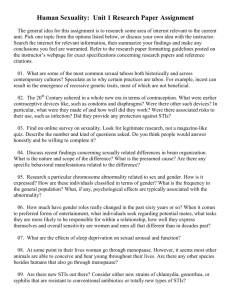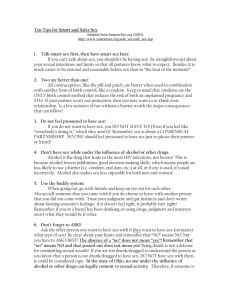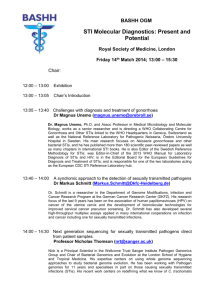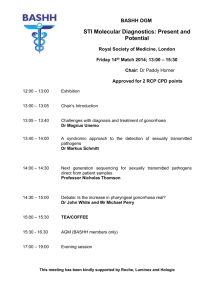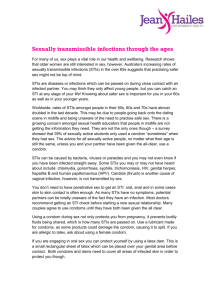SPACE TELESCOPE SCIENCE INSTITUTE
advertisement
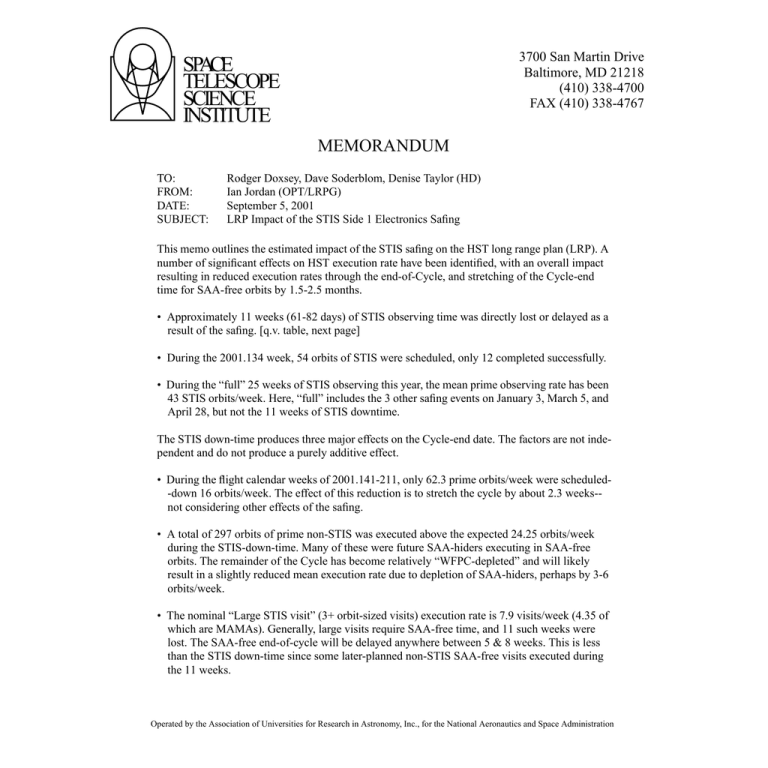
3700 San Martin Drive Baltimore, MD 21218 (410) 338-4700 FAX (410) 338-4767 SPACE TELESCOPE SCIENCE INSTITUTE MEMORANDUM TO: FROM: DATE: SUBJECT: Rodger Doxsey, Dave Soderblom, Denise Taylor (HD) Ian Jordan (OPT/LRPG) September 5, 2001 LRP Impact of the STIS Side 1 Electronics Safing This memo outlines the estimated impact of the STIS safing on the HST long range plan (LRP). A number of significant effects on HST execution rate have been identified, with an overall impact resulting in reduced execution rates through the end-of-Cycle, and stretching of the Cycle-end time for SAA-free orbits by 1.5-2.5 months. • Approximately 11 weeks (61-82 days) of STIS observing time was directly lost or delayed as a result of the safing. [q.v. table, next page] • During the 2001.134 week, 54 orbits of STIS were scheduled, only 12 completed successfully. • During the “full” 25 weeks of STIS observing this year, the mean prime observing rate has been 43 STIS orbits/week. Here, “full” includes the 3 other safing events on January 3, March 5, and April 28, but not the 11 weeks of STIS downtime. The STIS down-time produces three major effects on the Cycle-end date. The factors are not independent and do not produce a purely additive effect. • During the flight calendar weeks of 2001.141-211, only 62.3 prime orbits/week were scheduled-down 16 orbits/week. The effect of this reduction is to stretch the cycle by about 2.3 weeks-not considering other effects of the safing. • A total of 297 orbits of prime non-STIS was executed above the expected 24.25 orbits/week during the STIS-down-time. Many of these were future SAA-hiders executing in SAA-free orbits. The remainder of the Cycle has become relatively “WFPC-depleted” and will likely result in a slightly reduced mean execution rate due to depletion of SAA-hiders, perhaps by 3-6 orbits/week. • The nominal “Large STIS visit” (3+ orbit-sized visits) execution rate is 7.9 visits/week (4.35 of which are MAMAs). Generally, large visits require SAA-free time, and 11 such weeks were lost. The SAA-free end-of-cycle will be delayed anywhere between 5 & 8 weeks. This is less than the STIS down-time since some later-planned non-STIS SAA-free visits executed during the 11 weeks. Operated by the Association of Universities for Research in Astronomy, Inc., for the National Aeronautics and Space Administration 2 Other impacts include replanning activities and proposal reprocessing for visits impacted by the STIS downtime. Replanning activities include moving Cycle 10 visits later to accommodate Cycle 9 visits moved earlier into the plan. A “bow wave” effect on large-orbit visits in the LRP has already been noticed. Table 1: Major Events in the 2001 STIS Side 1 Electronics Safing Days from Safing Event Date/Time STIS Safing 2001.136:05 - First STIS exposure (CCD anneal) 2001.192:02 ~56 First STIS external (CCD parallel) 2001.194:05 ~58 First STIS external Prime GO 2001.197:00 ~61 First STIS/MAMA Prime external GO 2001.205:01 ~69 Enabling of STIS Imaging & Wide-slit spectroscopy 2001:211 ~75 Enabling of All STIS science 2001:218 ~82
